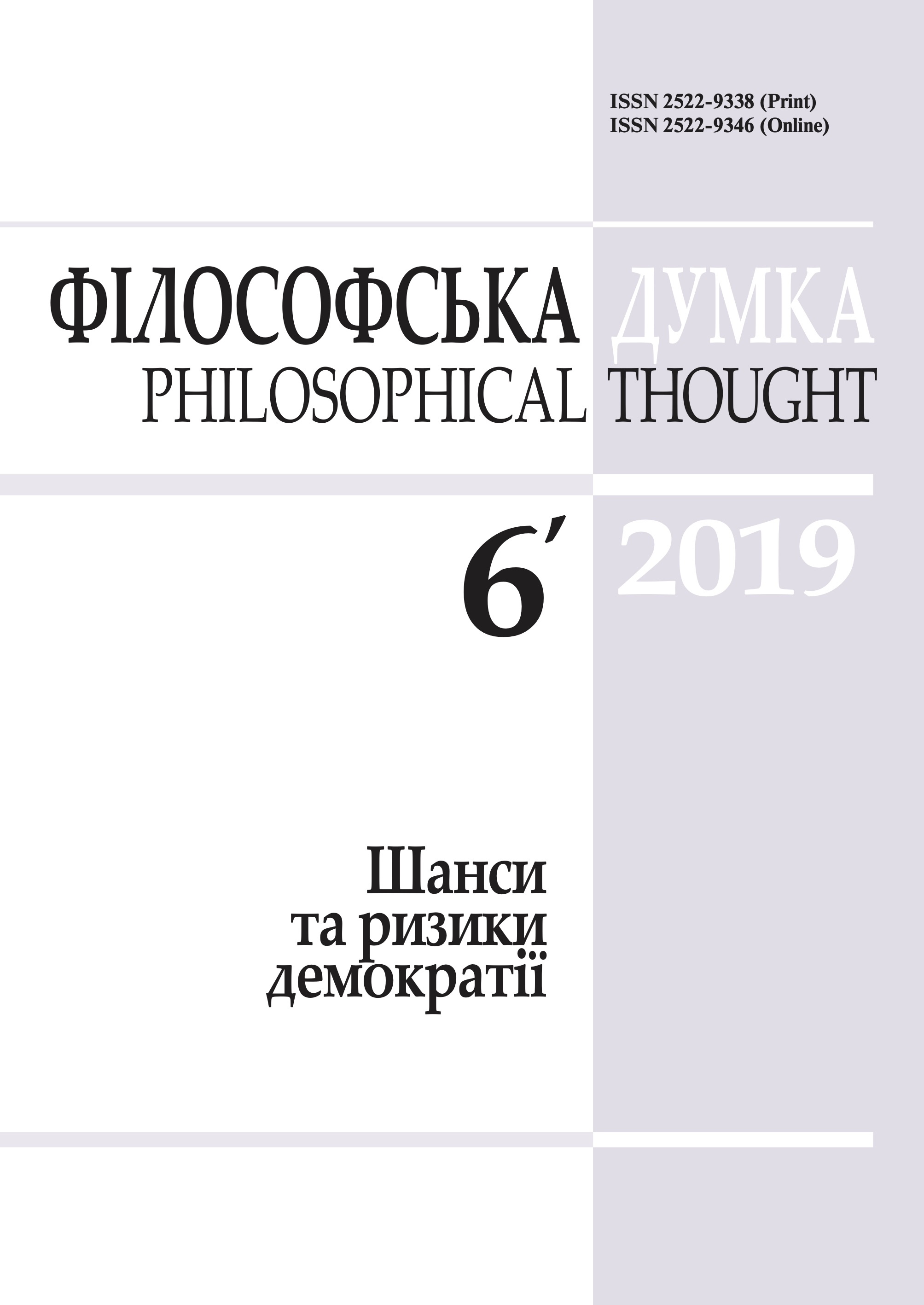Democracy and public discourse
DOI:
https://doi.org/10.15407/fd2019.06.046Keywords:
communication, public sphere, politics, democracy, culture, identityAbstract
The article explores the connection between politics of democracy and current communication medium. Color revolutions, particularly the one experienced in Ukraine, raise an issue of the present day relation between public and political spheres in the new global communicative context. Following the detailed analysis of the modern formation of public sphere done by Charles Taylor the author concentrates on the influence of communication on democratization processes. Amongst others, he focuses on such principle features of the public sphere as domination of rationality in its formation, its claims for providing accountability norms for power, and particularly on its extra-political status. In its turn, these key characteristics of the sphere include everyone as its potential legitimate participant. The field experience gained during the Ukrainian Revolution of Dignity make it possible to correct the view on interrelations of politics and the public sphere. Recent developments do increase dependence of powers that be on the public’s day-to-day feeling of their legitimacy. To elucidate the new state of interpenetration between two given spheres the author examines the issue of specificity of discourse that unites both. It allows to establish that it’s precisely the democratic ideals, concerning each and every one, that expand the frameworks of the sphere of political beyond its traditional meaning through inclusion of a broad spectrum of people’s cultural experiences. The author links current co-existence of liberal and conservative values within liberal democracies with people’s experiencing of their cultural identity. That conclusion gives the basis to clarify a phenomenon of rising conservatism inherent in today’s politics.
References
Kant, I. (1994). Criticism of practical reason. In I. Kant, Works: in 8 Vols. (Vol. 4). Moscow: Choro.
Kant, I. (2004). Criticism of practical reason. [Tr. by Igor Burkovsky.] Kyiv: Univers.
Agamben, G. (2015). Stasis. Civic War as a Political Paradigm (Homo Sacer II, 2). Meredian. Crossing Aesthetics. [Ed. by Werner Hamacher. Translated by Nicholas Heron.] Stanford: Stanford University Press.
Bobbio, N. (2005). Liberalism and Democracy. [Translated by Martin Ryle and Kate Soper.] London, New York: Verso.
Nancy, J.-L. (2010). Finite and Infinite Democracy/ In Democracy in What State? [Gotgio Agamben, Alain Badiou, Daniel Densaїd, Wendy Brown, Jean-Luc Nancy, Jacques Ranciere, Kristin Ross, Slavoj Zizek. Translated from French by William McCuaig.] New York: Columbia University Press.
Nancy, J.-L. (2012).The Truth of Democracy. [Translated by Pascale-Anne Brault and Michael Naas.] New York: Fodham University Press.
Digital globalization: The new era of global flows (2016). McKinsey Global Institute. Report. February 2016.
Taylor, Ch. (2007). A Secular Age. Cambridge, London: The Belknap Press of Harvard University Press.
Downloads
-
PDF (Українська)
Downloads: 493
Published
How to Cite
Issue
Section
License
Authors who publish with this journal agree to the following terms:
- Authors retain copyright and grant the journal right of first publication.
- Authors are able to enter into separate, additional contractual arrangements for the non-exclusive distribution of the journal's published version of the work (e.g., post it to an institutional repository or publish it in a book), with an acknowledgement of its initial publication in this journal.
- Authors are permitted and encouraged to post their work online (e.g., in institutional repositories or on their website) prior to and during the submission process, as it can lead to productive exchanges, as well as earlier and greater citation of published work (See The Effect of Open Access).


